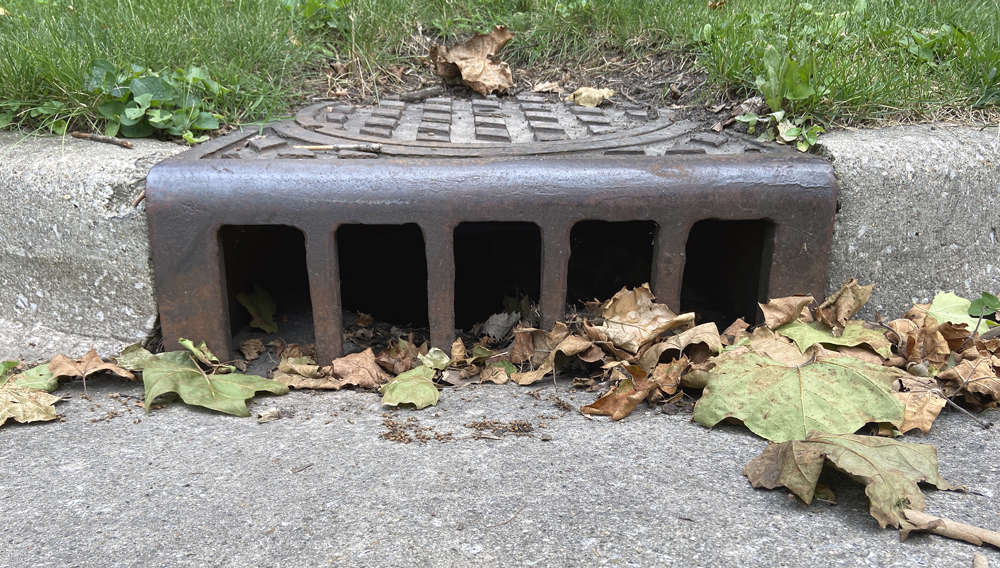The last few weeks have been wet ones, and in addition to rain dampening summer fun, it also causes flooding in many sections of Champaign. There are many reasons for this, some out of our control — swampy lands, a generally high water table, heavy rains — and some within our control, such as old drainage systems. Many of these root causes can be addressed with improvements to infrastructure.
One of the most egregious examples of this type of pervasive flooding in Champaign is in the Garden Hills neighborhood. The lack of action to address this problem is indicative of the lack of importance of this neighborhood to our elected representatives.
This problem is not new. It’s been covered in the news, and you can scroll through the United Garden Hills Neighborhood Association Facebook page to see photos of flooded streets and front yards going back years. It makes roads impossible to navigate, and those who do try to drive through the water can have their car engines seize and end up stranded in standing waters, sometimes as deep as two feet. The flooding in Garden Hills isn’t limited to just the residential parts, it’s also on major through streets like McKinley, Bradley, and Prospect.
Perhaps it seems obvious, but flooding isn’t just an inconvenience; it literally causes damages to streets, sidewalks — even though Garden Hills doesn’t have them yet — homes, and other infrastructure. It erodes the land. It damages vehicles, and causes lost wages because people are trapped and can’t get to work. All of that costs people time and money, and that is very real, and very important. But adding insult to injury is that this type of pervasive negligence by the City of Champaign is demoralizing and dehumanizing.
In 2015, after years of complaints, the City of Champaign “authorized an engineering drainage study in the Garden Hills Watershed that examined the causes of flooding and provided alternatives to reduce the flooding.” The Garden Hills Watershed Drainage Study identified the causes of the problems and offered several solutions. The five-phase project isn’t slated to begin for almost another decade, a bump up to 2030 instead of 2040. The City cites budgetary restrictions for this timeline. As we have argued time and time and time again about other issues, the budget argument is weak: it’s a matter of priorities.
The time to prioritize one of Champaign’s predominantly Black neighborhoods is now.
The Champaign City Council, Mayor Deb Feinen, and City Manager Dorothy David must find a way to reorganize and reprioritize the Garden Hills Watershed Drainage project. It cannot wait any longer. According to the City, the drainage problem must be addressed before the addition of sidewalks and street lamps, the Garden Hills Safety Lighting Energy Efficiency Program. Why should people in this neighborhood have to wait more than ten years for safety improvements?
In the meantime, there are a couple of things that the City can do to help mitigate some of the flooding problems:
- Strongly encourage/mandate that businesses adopt drains.
Even though Garden Hills is a residential neighborhood, the City can encourage — or mandate — that businesses in the area “adopt” drains. This is a program that has been available for some time, but most of the drains in Champaign are unadopted. Why not mandate that businesses adopt the drains on and near their premises? This won’t solve the problems in Garden Hills, but it can mitigate flooding in other areas, particularly on busy roads.
- Subsidize flood insurance to those in Garden Hills and other high risk flooding areas.
The flooding in Garden Hills damages property and structures. Flood insurance is not covered by standard homeowners or renters insurance. The City could offer some sort of subsidy or incentive for home and business owners to purchase flood insurance to protect the structures in this area, and prevent the displacement of residents.
As the effects of climate change worsen, these types of extreme, heavy rainfalls (and droughts, too) will become more regular. We have to encourage our elected officials to think long term about the health, safety, and wellness of the people in our community.
The Editorial Board is Jessica Hammie, Julie McClure, and Patrick Singer.








